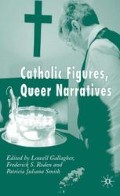Abstract
In considering Oscar Wilde’s Picture of Dorian Gray in a 1906 letter to his brother Stanislaus, James Joyce pointed to the apparent vagueness of Dorian’s transgressions: “It is not very difficult to read between the lines. Wilde seems to have had some good intentions in writing it — some wish to put himself before the world — but the book is rather crowded with lies and epigrams. If he had had the courage to develop the allusions in the book it might have been better. I suspect he has done this in some privately-printed book.”1 The inexplicit mood of corruption that Joyce detects in Dorian Gray has indeed provided much of the impetus behind the novel’s critical fascination, both at Wilde’s trial itself and in the twentieth century.2 What Joyce — like Edward Carson, Queensberry’s defense attorney at Wilde’s first trial3 — seems to want from Wilde is a kind of confession, imagined as the revelation of some version of the truth obscured behind the “lies and epigrams” of Wilde’s public persona. Joyce’s fantasy of the “privately-printed book” evokes the private confession, tantalizingly inaccessible to the public, its fascinating truth available only to the priest or the exclusive readership. Joyce’s desire to peer between the covers (real or imagined) of that book is also a desire to play-act the father confessor, to hear as explicit truth the facts of what is occurring under the covers (again, real or imagined) of Dorian’s — or Wilde’s — bed.
“And you made me confess to you, Stephen said, thrilled by his touch, as I have confessed to you so many other things, have I not?”
James Joyce, A Portrait of the Artist as a Young Man (1916)
Access this chapter
Tax calculation will be finalised at checkout
Purchases are for personal use only
Preview
Unable to display preview. Download preview PDF.
Notes
James Joyce, Selected Letters, ed. Richard Ellmann (New York: Viking Press, 1975), 96.
See H. Montgomery Hyde, The Trials of Oscar Wilde (New York: Dover Publications, 1962), 109–15.
Quotations from Wilde will be cited in the text as they appear in Oscar Wilde, The Complete Works of Oscar Wilde, gen. ed. J. B. Foreman (New York: Harper & Row, 1989).
Quotations from Portrait will be cited in the text by page number as they appear in James Joyce, A Portrait of the Artist as a Young Man (New York and London: Penguin Books, 1993).
Michel Foucault, The History of Sexuality, Volume One, trans. Robert Hurley (New York: Vintage, 1990), 20.
Jonathan Mulrooney, “Stephen Dedalus and the Politics of Confession,” Studies in the Novel 33.2 (Summer 2001), 167.
For extended analyses of the relationship between homosexuality and linguistic deviance, see Derek Attridge, “Language, Sexuality and the Remainder in A Portrait of the Artist as a Young Man,” James Joyce and the Difference of Language, ed. Laurent Milesi (Cambridge and New York: Cambridge University Press, 2003), 128–41;
and Christy Burns, “In the Original Sinse: the Gay Cliché and Verbal Transgression in Finnegans Wake,” in Quare Joyce, ed. Joseph Valente (Ann Arbor: University of Michigan Press, 1998), 201–22.
James Joyce, “Oscar Wilde: the Poet of ‘Salomé,’” The Critical Writings of James Joyce, ed. Ellsworth Mason and Richard Ellmann (London: Faber and Faber, 1959), 204.
Katherine Mullin, James Joyce, Sexuality, and Social Purity (Cambridge and New York: Cambridge University Press, 2003), 83.
James Joyce, Finnegan’s Wake, 3rd edn (London: Faber and Faber, Ltd., 1964), 523.
James Joyce, Ulysses (New York: Vintage International, 1990), 49.
Joyce, Ulysses, ed. Hans Walter Gabler (New York: Vintage, 1986), 41.
Quoted in Walter Walsh, The Secret History of the Oxford Movement, 3rd edn (London: Swan, Sonnenschein and Co., Ltd., 1898), 356.
For an analysis of the spectacle of sexual deviance that surrounds Salomé’s kissing of John’s head, see Richard Dellamora, “Traversing the Feminine in Oscar Wilde’s Salomé,” in Victorian Sages and Cultural Discourse: Renegotiating Gender and Power, ed. Thaïs E. Morgan (New Brunswick and London: Rutgers University Press, 1990), esp. 249–56.
Patrick R. O’Malley, “Religion,” in Palgrave Advances in Oscar Wilde Studies, ed. Frederick S. Roden (Basingstoke: Palgrave Macmillan, 2004), 180.
See Elliot L. Gilbert, “‘Tumult of Images’: Wilde, Beardsley, and Salome,” Victorian Studies 26.2 (Winter 1983), 145.
I have traced elsewhere the late ninteenth-century shift in “perversion”‘s signification precisely from the sphere of religious to the sphere of sexual deviance. (See O’Malley, “‘The Church’s Closet’: Confessionals, Victorian Catholicism, and the Crisis of Identification,” Passing: Identity and Interpretation in Sexuality, Race, and Religion, ed. Linda Schlossberg and Maria Carla Sánchez [New York: New York University Press, 2001], 248.)
Editor information
Editors and Affiliations
Copyright information
© 2006 Patrick R. O’Malley
About this chapter
Cite this chapter
O’Malley, P.R. (2006). Confessing Stephen: the Nostalgic Erotics of Catholicism in A Portrait of the Artist as a Young Man. In: Gallagher, L., Roden, F.S., Smith, P.J. (eds) Catholic Figures, Queer Narratives. Palgrave Macmillan, London. https://doi.org/10.1057/9780230287778_5
Download citation
DOI: https://doi.org/10.1057/9780230287778_5
Publisher Name: Palgrave Macmillan, London
Print ISBN: 978-1-349-28393-4
Online ISBN: 978-0-230-28777-8
eBook Packages: Palgrave Literature & Performing Arts CollectionLiterature, Cultural and Media Studies (R0)

